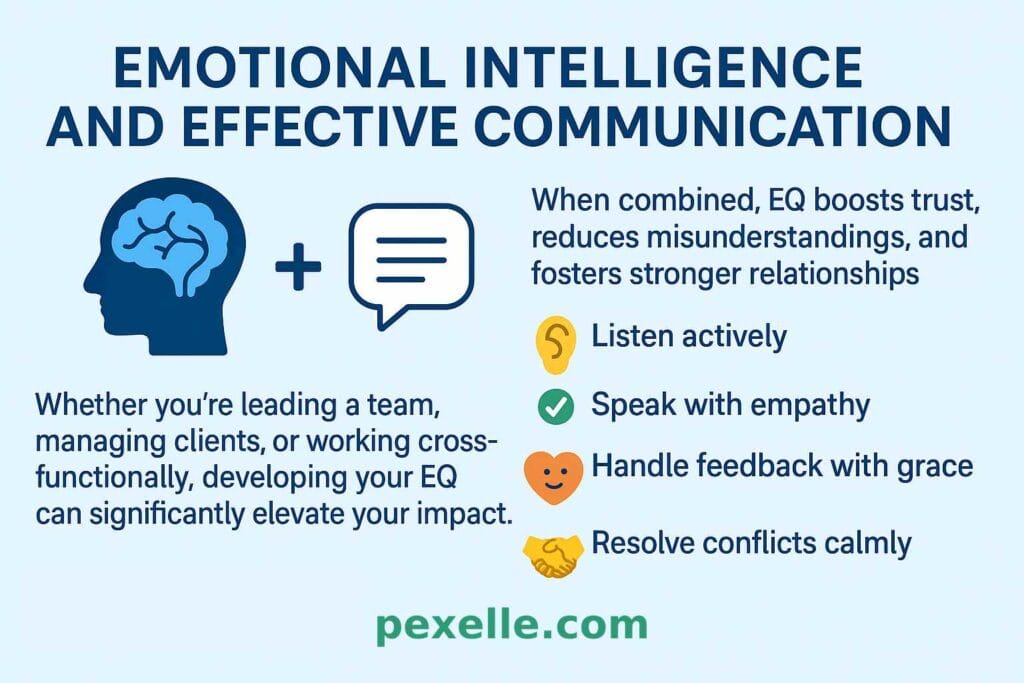Emotional Intelligence and Effective Communication

In our increasingly interconnected and dynamic world, the ability to understand and manage emotions—both our own and those of others—has become essential. This capacity, known as emotional intelligence (EQ), plays a critical role in how we interact with others, resolve conflicts, and build meaningful relationships. When paired with effective communication, emotional intelligence becomes one of the most powerful tools for personal and professional success.
What Is Emotional Intelligence?
Emotional intelligence refers to the ability to perceive, interpret, and respond to emotions in a balanced and thoughtful way. It encompasses several core competencies:
- Self-awareness – Recognizing your own emotions and their impact
- Self-regulation – Managing emotional reactions and staying composed under pressure
- Motivation – Being driven to achieve goals with resilience and optimism
- Empathy – Understanding others’ feelings and perspectives
- Social skills – Building strong interpersonal relationships through trust and cooperation
These competencies not only help individuals manage their internal emotional landscape but also enable them to engage with others more effectively.
The Role of EQ in Communication
Communication is not just about the words we use—it’s also about how we listen, observe, and respond. Emotionally intelligent individuals tend to communicate more clearly and compassionately. They are attentive to non-verbal cues, such as tone of voice, facial expressions, and body language, which often carry more weight than spoken words.
Effective communicators with high EQ:
- Listen actively and without judgment
- Express themselves clearly and calmly
- Show empathy and validate others’ emotions
- Navigate misunderstandings with patience and tact
- Offer constructive feedback rather than criticism
Such communication fosters deeper trust, prevents unnecessary conflicts, and encourages collaboration.
Emotional Intelligence in the Workplace
In professional settings, emotional intelligence is a key determinant of leadership success, team performance, and employee satisfaction. Leaders with high EQ are more likely to inspire loyalty, resolve disputes peacefully, and create inclusive environments. Similarly, employees with strong emotional intelligence are better equipped to handle stress, adapt to change, and contribute positively to team dynamics.
EQ also plays a major role in conflict resolution. Instead of reacting defensively, emotionally intelligent individuals seek to understand the root causes of tension and address them respectfully.
Conclusion
In an age where emotional well-being and social dynamics are increasingly recognized as vital to success, emotional intelligence and effective communication stand out as indispensable skills. Together, they empower us to lead with empathy, connect with others more deeply, and create environments of trust, respect, and cooperation. Cultivating EQ is not only an investment in personal growth—it is a strategic advantage in every area of life.
Source : Medium.com




